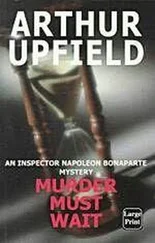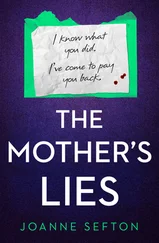‘Erm, well …’
‘I’d get some classes if I were you. Lovely Mary will help you out.’
‘Lovely …?’
‘Runs the Signal Box Café. Used to be secretary on her father’s dairy farm.’ They walked out of the office together. ‘How went the obituary?’
‘I discover I have led a fascinating life. I hadn’t realised quite what a remarkable chap I am. And my death, such a loss to Temple Regis. “The town mourned at the sudden departure …” .’
‘You didn’t finish it?’
‘I was there till midnight. Whichever way I wrote it, it looked wrong. You start a sentence and by the time you get to the other end you’ve forgotten why you started it that way. So you undo it and start again. You put the front at the back and the back at the front. That seems to work. Then you realise that actually the story starts in the third paragraph, so you tear out the first two and are happily tapping along when you realise that paras one and two have some bearing on the new first paragraph and without the nourishment they provide to the narrative, you’re sunk.
‘So then you amalgamate all three paragraphs into one – you’ve got all the story there now. But then there’s nothing left to say. You’re supposed to write three hundred words and it’s all been said in a fraction of that.’
Well, clearly he has some linguistic ability, thought Miss Dimont, if no discernible writing talent.
‘But there’s another way of looking at it,’ went on Valentine, striding manfully forward towards the courthouse, blond hair flapping in the warm breeze. ‘I discovered that at about 11.15. You start with the family history and, as you know … ’
‘Ancient family. Lots of them. None in journalism except for the one we don’t mention.’ Miss Dimont’s recall, and sharp gift for precis, were second to none.
‘It was no good. When I wrote about them I realised nobody cares about your folks. Not sure I do myself. So after about half an hour I chucked that away and started again. Suddenly it all started to come together. I realised what had to be said, and I said it. D’you want to take a look?’ He delved into his jacket pocket and pulled out a crumpled twist of copy paper.
‘No thanks,’ said Judy briskly. ‘I’ll read it when you’re dead.’
The gloomy cathedral-like room which dispensed what passed for justice in Temple Regis looked even drearier this morning. It was probably the joyous June light piercing through the unwashed stained-glass windows that did it.
The Magistrates’ Clerk, Mr Thurlestone, was his usual distant self. He resented the sparkling fabric Miss Dimont wove from the mundane and plodding proceedings over which he presided – almost as if it were another world she was describing!
Furthermore, the things she chose to write about! A complicated two-day fraud case, through which the Clerk had to guide his somnolent magistrates before telling them what their opinion was of the accused, what should be said to him in summing up, and what his sentence should be – uphill work indeed for Mr Thurlestone – was dismissed in a paragraph or two.
On the other hand, the matter of the curate cycling without lights! Miss Dimont had made banner headlines out of that, yet all it had been was a minor transgression rewarded with a five-shilling fine. But oh, the fuss she made about it! It made a mockery of the justice handed down by his court.
Miss Dimont indicated to her junior reporter where he should sit, and wandered over to the Clerk’s bench to collect the charge sheet. It was handed over with Thurlestone’s customary disdain.
‘The point about being here,’ Miss Dimont said, returning to the reporters’ bench, ‘is not to be overawed by the weight of the law – that’s what Mr Thurlestone and the magistrates expect from you. And that is precisely what you are not going to give them. ‘They’re just as full of foible and weakness as the people they sit in judgement on. They may never have done a wrong thing in their life, but that doesn’t make them right.’
Valentine nervously fished out his notebook. It was clear he had mislaid his pencil.
‘The only thing that’s right is the law,’ Judy went on, lowering her voice to a whisper as proceedings commenced. ‘And that’s why we’re here, to watch out on behalf of the public. Make sure it’s administered correctly. And report back.’ She handed the young man a spare pencil she’d fished from her corkscrew curls.
The young reporter had yet to discover there was what might be termed ‘previous’ between his senior and the Clerk. Thurlestone quite often allowed the hangers and floggers who sat behind him on the bench to overprescribe the medication. Some of them had a taste for sweeping all miscreants into jail, especially the knicker snatchers and sheep molesters, and sometimes he felt powerless to resist their lust for retribution. Miss Dimont often had to remind the town, in the Comment page, of their frailty.
Not this morning, though.
‘Oh, look!’ she exclaimed with delight, ‘what have we here?’ She had been reading the charge sheet.
‘Call Mrs Phyllis Bickington.’
A small woman of startling beauty stepped into the dock to confirm her name and to swear that, by God, she would indeed tell the truth.
‘Phyllis Ada Bickington, you are charged with assault on your uncle, also described as your husband, Adam Porrit Bickington. How do you plead?’
‘Not guilty.’
‘Sit down.’
The events in the Bickingtons’ turbulent domestic life were slowly laid bare. Miss Dimont lay down her pen and watched as Valentine struggled to keep up with what was turning into a ripsnorter of a case. Reuben Bickington had fallen in love with his brother’s daughter, and secretly married her though there was an age gap of nearly thirty years between them. All three lived on a farm hidden in a valley some five miles from Temple Regis, a place where no tourist ever went, and precious few locals dared either.
As the story slowly unravelled, Valentine’s eyebrows crept up his forehead. The court was told that in the Bickington valley, such marriages were not uncommon – ‘though they do stop short at allowing brother and sister,’ whispered Judy. ‘Mostly.’
That there was a culture gap between uncle and niece – she had been to school, he had not – became evident early in the proceedings. Certainly there had been disagreements over his unusual treatment of farm animals. But the case ground to a halt when it emerged that Phyllis was covering up for her father, her husband’s brother, who had come round to their cottage and delivered a fraternal thrashing over an aspect of the couple’s personal life which was not allowed to be mentioned verbally but had to be written down.
This did not please Colonel de Saumarez, the Chairman of the Bench, who was itching to deliver a homily on arcane vices in rural communities before sending the woman away for a well-deserved spell in the cooler. Instead, after consulting Mr Thurlestone, he was obliged to let Mrs Bickington walk free without, he added through gritted teeth, a stain on her character.
‘Poor thing,’ said Miss Dimont as she was led away, ‘she can only be seventeen.’
‘Doesn’t seem possible,’ said Valentine who, despite his National Service, had evidently led a sheltered life.
‘You can write it up,’ said Miss Dimont, picking up her raffia bag. ‘I’m off to Bedlington.’
‘Erm …’ said Valentine, hesitantly, ‘can I give you a lift?’
It took two minutes for Judy Dimont to regret her decision to say yes, for there in the car park was Valentine’s pride and joy, a Heinkel bubble car. It was red. And very prominent.
‘I’m afraid there’s no elegant way to step into this,’ said Valentine, energetically throwing open the door which comprised the whole of the front of the vehicle. ‘You basically have to wish for good fortune and throw yourself in.’
Читать дальше












